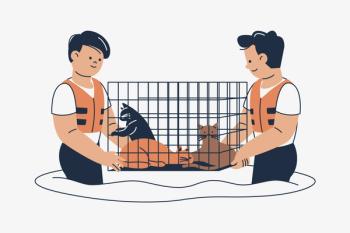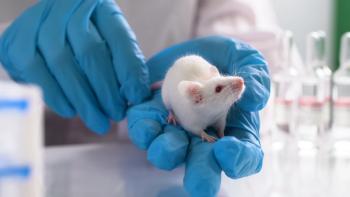
AVMA changes policies on abuse reporting, molting chickens, and cosmetic docking of lambs' tails
Schaumburg, Ill. -- The American Veterinary Medical Association (AVMA) Executive Board has approved changes recommended by its Animal Welfare Committee to policies on animal abuse and neglect reporting, as well as new guidelines for molting chickens, beak trimming and docking of lambs' tails.
Schaumburg, Ill.
-- The American Veterinary Medical Association (AVMA) Executive Board has approved changes recommended by its Animal Welfare Committee to policies on animal abuse and neglect reporting, as well as new guidelines for molting chickens, beak trimming and docking of lambs' tails.
The AVMA asks veterinarians to report animal abuse and neglect cases to authorities, whether or not reporting is required by law. A new sentence in the policy now also asks veterinarians to educate clients about mistreatment that may not be against the law: "The AVMA considers it the responsibility of the veterinarian to educate clients regarding humane care and treatment of animals."
On the issue of inducing molting in chickens, the AVMA rewrote its policy and secured agreement on the new wording from the American Association of Avian Pathologists and the Association of Avian Veterinarians. The policy requires molting of commercial layer chickens to be "carefully monitored and controlled" and not to include withdrawal of food or water to induce molting. "Acceptable practices include reduction of photo-period (day length) and specific nutrient restrictions that result in cessation of egg production," the policy reads in part.
In response to further review of the practice of beak trimming in poultry, the AVMA's policy makes it clear that trimming is only to be done "when necessary to prevent feather pecking and cannibalism." The AVMA also encourages the development of alternative practices that can reduce or eliminate the need to trim beaks, including genetic selection and better management of light and nutrition.
The AVMA has also came out against docking of lambs' tails for cosmetic reasons. The new policy cites concern about rectal prolapse in lambs whose tails are docked too short. The organization recommends that lambs' tails be docked no higher than the distal end of the caudal tail fold and at the earliest age possible. The AVMA also encourages use of medication to lessen pain and discomfort for the lambs.
The Executive Board approved the new policies at its November meeting.
Newsletter
From exam room tips to practice management insights, get trusted veterinary news delivered straight to your inbox—subscribe to dvm360.




